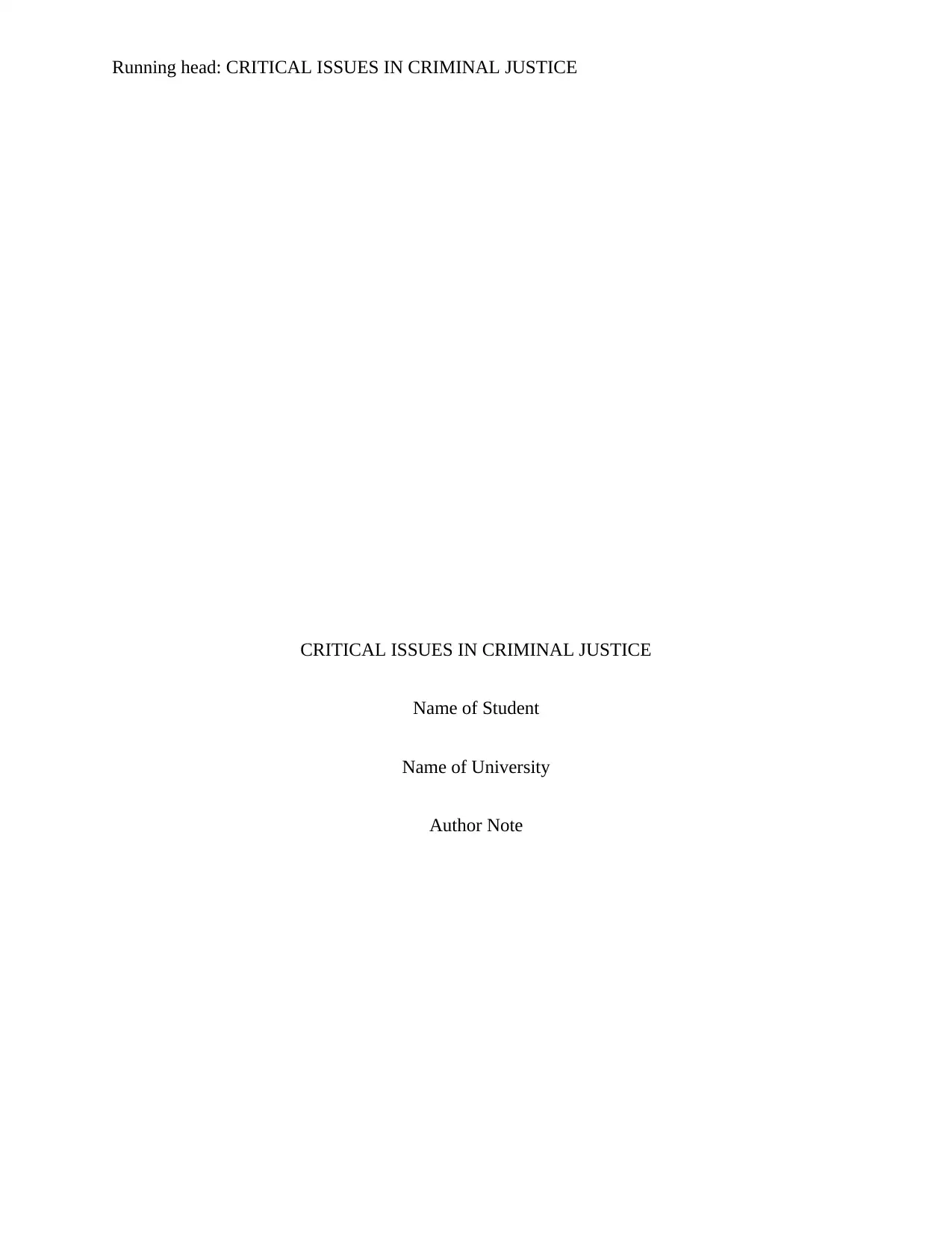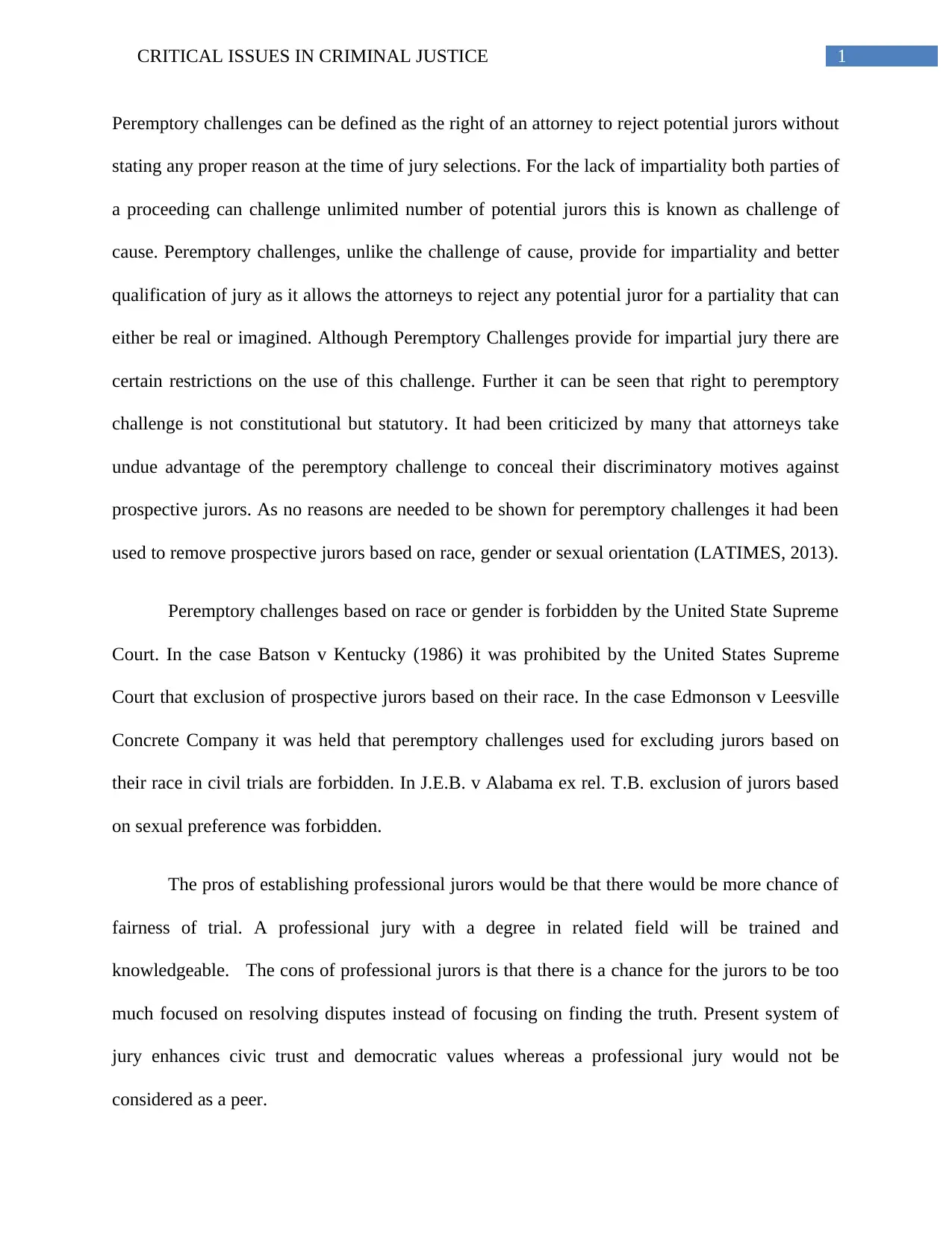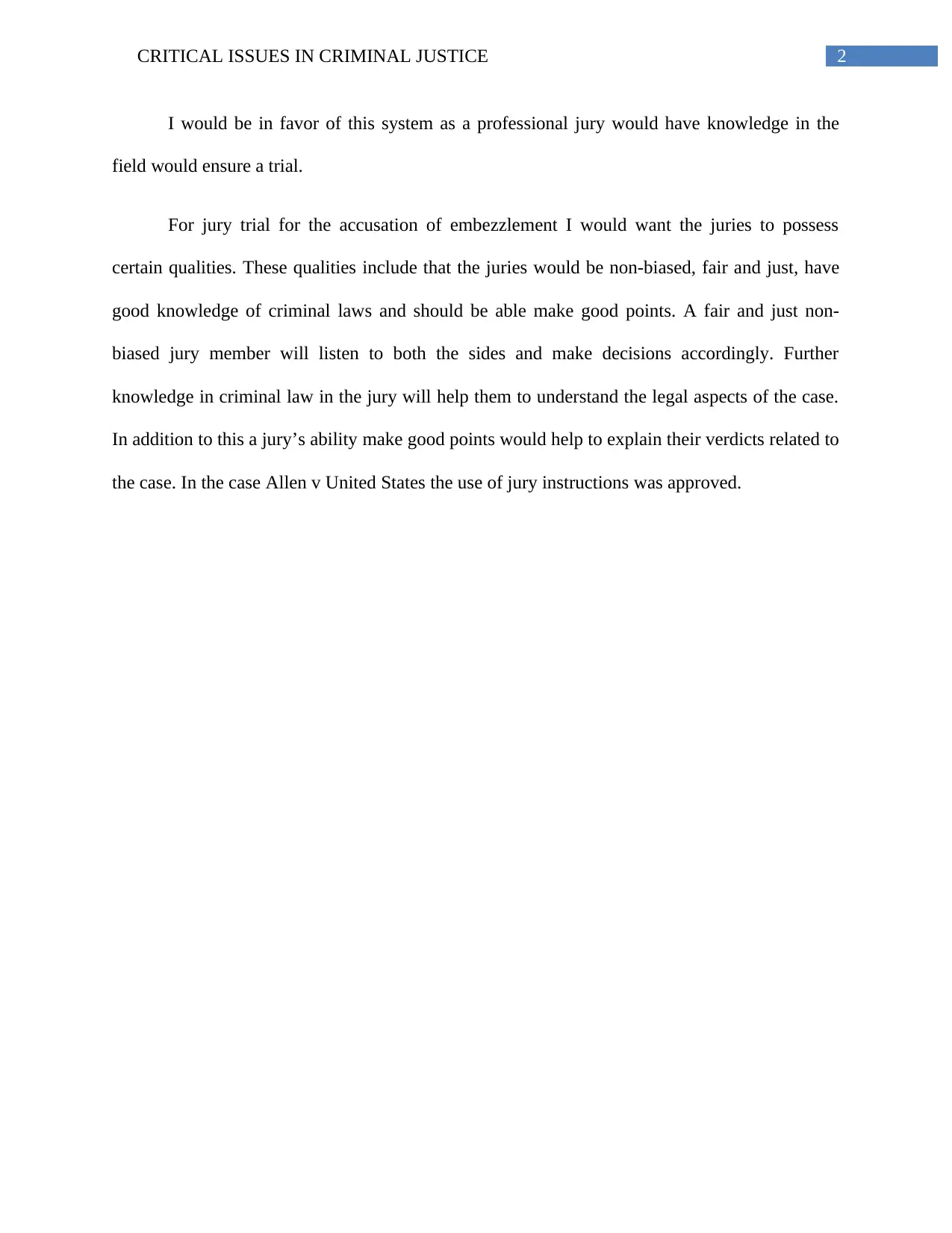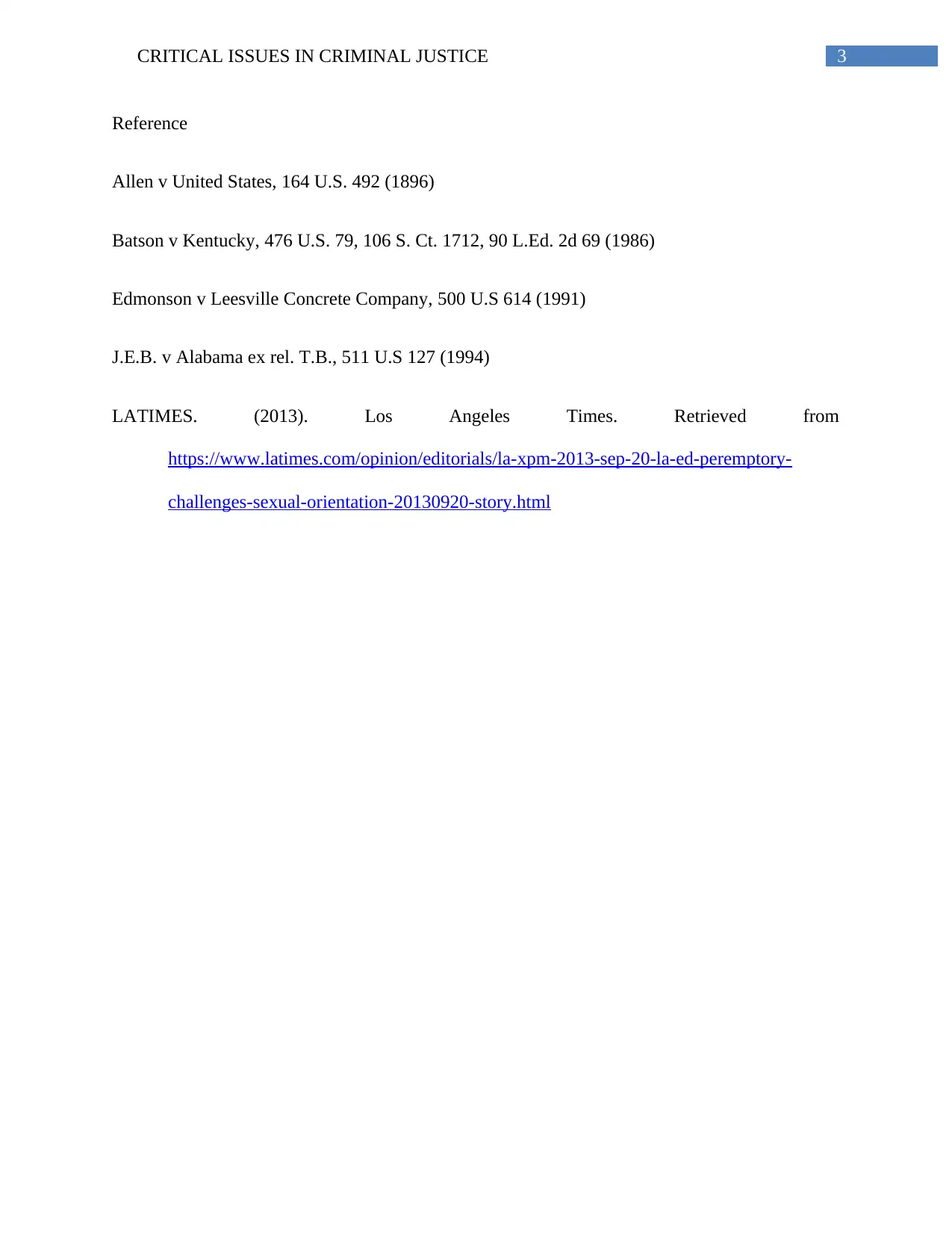Critical Issues in Criminal Justice: Jury Selection and Embezzlement
VerifiedAdded on 2022/11/15
|4
|606
|118
Discussion Board Post
AI Summary
This discussion board post addresses critical issues in criminal justice, focusing on jury selection and the role of juries in trials. It defines peremptory challenges and explores restrictions on their use, referencing cases like Batson v. Kentucky and Edmonson v. Leesville Concrete Company. The post then analyzes the pros and cons of establishing professional jurors, weighing fairness against civic trust. The author expresses support for a professional jury system and outlines the specific characteristics desired in a jury for an embezzlement case, emphasizing non-bias, fairness, criminal law knowledge, and the ability to articulate points. The influence of these characteristics on trial outcomes is also examined.
1 out of 4








![[object Object]](/_next/static/media/star-bottom.7253800d.svg)